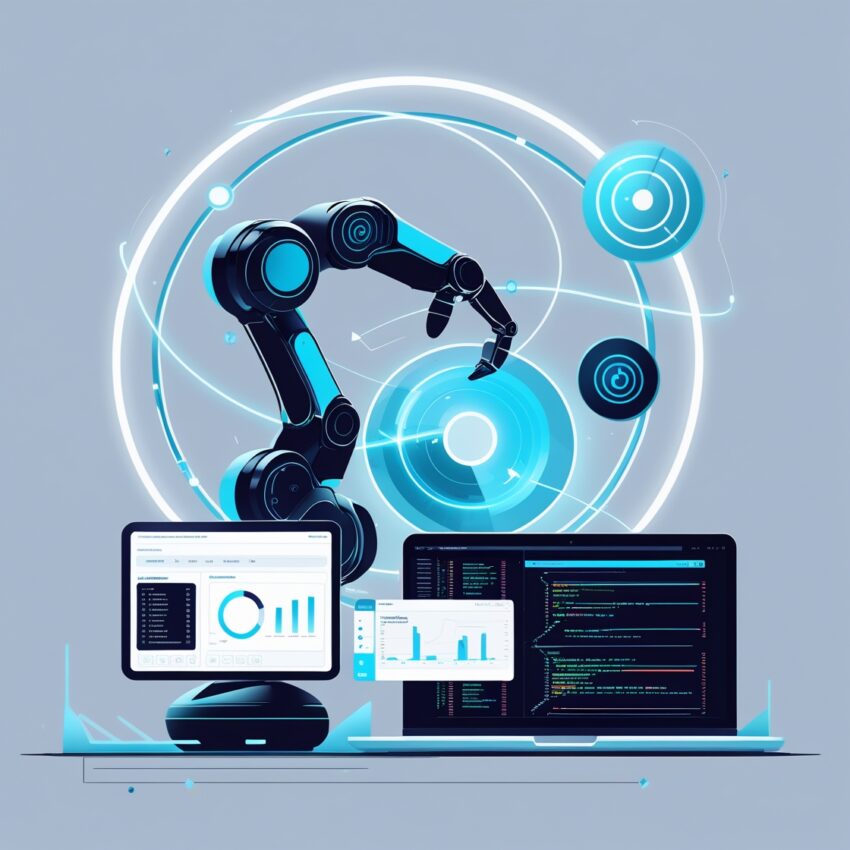AI Tools for Business Automation in 2025
In 2025, artificial intelligence is no longer just a buzzword—it’s a core driver of business transformation. Companies of all sizes are embracing AI tools to automate repetitive tasks, streamline operations, and increase productivity. From customer service and data analysis to workflow automation and sales processes, AI is helping businesses do more with less.
Whether you’re a startup, small business, or enterprise, leveraging the right AI tools can give you a competitive edge. In this article, we explore the top AI tools for business automation in 2025, their benefits, and how you can implement them to save time, reduce costs, and improve decision-making.
Why Use AI for Business Automation?
Automation with AI enables businesses to offload time-consuming manual tasks to intelligent software systems. Unlike traditional automation, which requires rigid programming, AI systems can learn from data, adapt to new patterns, and make decisions on their own.
Key reasons businesses are using AI for automation include:
- Faster task execution with fewer errors
- Cost savings on labor and operations
- Improved customer experiences through intelligent interactions
- Better data management and insights
- Scalability without adding headcount
Top AI Tools for Business Automation in 2025
1. Zapier with AI-Powered Workflows
Zapier is a leading automation platform that connects apps and automates workflows. In 2025, it includes AI-driven tools that help businesses make decisions, summarize content, and analyze inputs within automated tasks.
- Automates emails, CRM updates, calendar invites, and more
- New AI steps allow smarter branching and content handling
- Easy to set up, with no coding required
2. UiPath for Robotic Process Automation (RPA)
UiPath is one of the most popular RPA platforms, helping businesses automate rule-based tasks such as invoice processing, payroll, and data entry.
- Uses AI to recognize patterns in documents and emails
- Offers prebuilt bots for finance, HR, and customer support
- Scales easily for enterprise use
3. Salesforce Einstein
Salesforce Einstein adds AI capabilities to the popular CRM system, automating sales forecasting, lead scoring, and personalized email campaigns.
- Predicts customer behavior and recommends actions
- Automates follow-ups and contact segmentation
- Integrates seamlessly into existing Salesforce workflows
4. Grammarly Business
Grammarly uses AI to improve writing, tone, and clarity. For teams, it ensures professional communication across emails, marketing materials, and internal documents.
- Real-time grammar and tone suggestions
- Style guide enforcement across departments
- Analytics dashboard to track communication quality
5. ChatGPT and GPT-Based AI Assistants
AI chatbots like ChatGPT can handle customer queries, write emails, summarize documents, and generate content—saving hours of manual work.
- Automates customer support and FAQ handling
- Drafts marketing copy, product descriptions, and emails
- Integrates with Slack, Google Docs, CRMs, and more
6. Notion AI
Notion has added built-in AI tools to help with note-taking, project management, and team collaboration.
- Summarizes meeting notes
- Generates to-do lists and content outlines
- Speeds up documentation and planning processes
7. QuickBooks with AI-Powered Accounting
QuickBooks uses AI to automate bookkeeping, categorize expenses, and reconcile accounts.
- Saves time on invoicing and payroll
- Flags unusual transactions or errors
- Generates real-time financial insights
Benefits of AI Tools for Automation
Using AI for automation offers a variety of benefits across different departments:
- Customer Support: AI chatbots reduce support costs and handle inquiries 24/7
- Sales and Marketing: Automates lead nurturing, campaign optimization, and content generation
- Finance: Speeds up invoice processing, payroll, and compliance checks
- Human Resources: Automates applicant screening, onboarding, and employee surveys
- Operations: Improves task management, reporting, and productivity monitoring
Things to Consider Before Adopting AI Automation
While AI tools can offer huge advantages, it’s important to approach implementation carefully:
- Identify clear goals and tasks you want to automate
- Choose tools that integrate with your existing software stack
- Train your team to understand and use AI effectively
- Monitor performance and adjust workflows as needed
- Stay aware of privacy, compliance, and data security issues
Conclusion
AI tools for business automation are transforming the way companies operate in 2025. Whether you’re looking to streamline customer service, accelerate marketing, or optimize internal operations, AI can help reduce costs and improve efficiency.
By adopting tools like Zapier, UiPath, Salesforce Einstein, and GPT-based assistants, your business can stay competitive, scale faster, and empower your team to focus on higher-value work. As AI continues to evolve, the opportunities for automation will only grow—making now the perfect time to invest in your automation strategy.
